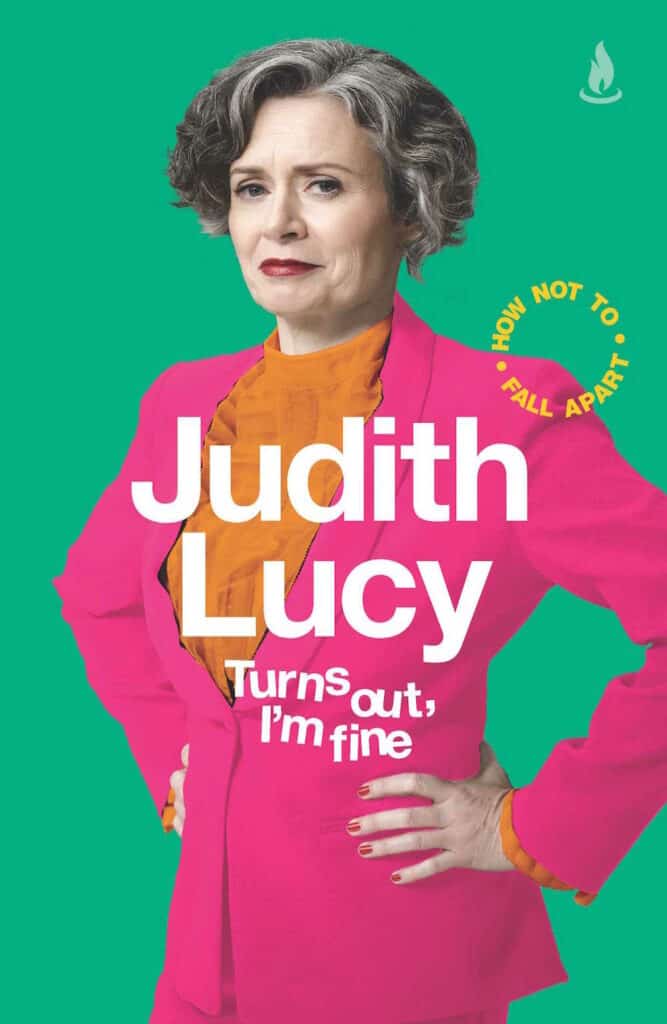Leading Australian comedian Judith Lucy has published her third book. It is a chronicle of hard truths, humility and humour in pursuit of a prickly but important idea: we die alone but how do we live alone (and, happily so).
The older you are in society, and particularly if you’re flying solo, your experience of companionship, sexuality, financial freedom, family and a sense of purpose might shift, and you may even be ignored.

Setting aside collective responsibility, how does the individual enjoy this stage of life, not feel judged, be seen and participate? Lucy interrogates her own past failed relationships, but that is just one piece of the puzzle. Her real mandate is to connect with being alone.
‘Turns out I’m Fine: How to Not Fall Apart’ has a conversational feel, and as with a good chinwag the text is layered with family and personal history and not a paragraph seems to go by without a joke or a self-deprecating observation.
I admit for this reason I dipped in and out of the book over a few weeks, rather than my preferred indulgence of a few sittings. Another reason for this pace is that the author’s self-reflection and themes can be cutting. I wanted to go away and think about why this is her experience, will it be mine, and is it that of people I know?

I felt Lucy’s, and human, negativity is linked to fear, conscious or unconscious. It can be hard to look at who you are and where you fit, or don’t, but if we don’t learn about ourselves, the forecast is not good. That being said, she catalogues plenty of things that might warrant pessimism; issues with alcohol, complex family relationships, work failures, betrayal in love and the realities of aging.
She tries to tackle these with self-awareness, for example how alcohol numbs and misogyny can seed self-defeating choices in relationships, a fractured sense of self and variable empathy. Her book seeks balance. Facing fear can be seeing the good and the bad and being OK in the middle, there’s utility in that.
It’s a ‘coming of age’ text in a new way; the transformation of an older woman who is independently taking responsibility for her happiness.
At the conclusion of the book Lucy is speaking less about a gender binary and more about the importance of universal connection; empathy for others who are struggling and the splendour of nature.
The title ‘Turns out I’m Fine’ is a nod to the little voice within us that asks, are you good enough or, is this as good as it gets? If the answer is disappointing to you, you’re in a similar position as Lucy was.
So, how do you ‘make do’ or better yet ‘thrive’ when you realise you aren’t where you thought you’d be on the journey of life, and if you have to accept the position you’re in how do you do it with grace and hopefully find pleasure in the present?
The final chapters reveal her ongoing realisation that human connection outside romantic relationships and friends can be fulfilling, for example in volunteering, and that time in nature is a mutually sustaining joy, nourishing plants to live and realising that their life-force is company as we move through the world. Throw in a magical swim with whale sharks in Western Australia and Lucy’s idea of loneliness is recast, to be surrounded by the natural world is to be surrounded by the abiding force of life. Happy days.
Order your copy of the book here, if you buy it through our link we will receive a small commission.